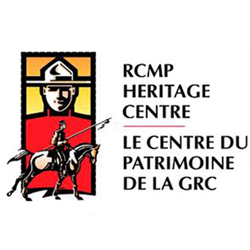Men In Scarlet

Back in the day when the public was bedazzled by the men of the Mounted Police and their scarlet tunics, it seems lots of people wanted to write about the “Riders of the Plains”;
“There are things unguessed, there are tales untold, in the life of the great lone land,
But here is a fact that the prairie-bred alone may understand,
That a thousand miles in the fastnesses the fear of the law obtains,
And the pioneers of justice were the Riders of the Plains.”
Unknown

Who is it lacks the knowledge? Who are the curs that dare
To whine and sneer that they do not fear the whelps in the Lion’s lair?
But we of the North will answer, while life in the North remains,
Let the curs beware lest the whelps they dare are the Riders of the Plains;
For these are the kind whose muscle makes the power of the Lion’s jaw,
And they keep the peace of our people and the honour of British law.
A women has painted a picture – ’tis a neat little bit of art
The critics aver, and it roused up for her the love of the big British heart.
‘Tis a sketch of an English bulldog that tigers would scarce attack;
And round and about and beneath him is painted the Union Jack,
With its blaze of colour, and courage, its daring in every fold,
And underneath is the title, ‘What we have we’ll hold.’
‘Tis a picture plain as a mirror, but the reflex it contains
Is the counterpart of the life and heart of the Riders of the Plains;
For like to that flag and that motto, and the power of that bulldog’s jaw,
They keep the peace of our people and the honour of British law.
These are the fearless fighters, whose life in the open lies,
Who never fail on the prairie trail ‘neath the Territorial skies,
Who have laughed in the face of the bullets and the edge of the rebels’ steel,
Who have set their ban on the lawless man with his crime beneath their heel;
These are the men who battle the blizzards, the suns, the rains,
These are the famed that the North has named, ‘The Riders of the Plains,’
And theirs is the might and the meaning and the strength of the bulldog’s jaw,
While they keep the peace of the people and the honour of British law.
These are the men of action, who need not the world’s renown,
For their valour is known to England’s throne as a gem in the British crown;
These are the men who face the front, with courage the world may scan,
The men who are feared by the felon, but are loved by the honest man;
These are the marrow, the pith, the cream, the best that the blood contains,
Who have cast their days in the valiant ways of the Riders of the Plains;
And theirs is the kind whose muscle makes the power of old England’s jaw,
And they keep the peace of her people and the honour of British law.
Then down with the cur that questions,–let him slink to his craven den,
For he daren’t deny our hot reply as to ‘who are our mounted men.’
He shall honour them east and westward, he shall honour them south and north,
He shall bare his head to that coat of red wherever that red rides forth.
‘Tis well that he knows the fibre that the great North-West contains,
The North-West pride in her men that ride on the Territorial plains,–
For such as these are the muscles and the teeth in the Lion’s Jaw,
And they keep the peace of our people and the honour of British law.
“These are the fearless fighters, whose life in the open lies,
Who never fail on the prairie trail ‘neath the Territorial Skies,
Who have laughed in the face of the bullets and the edge of the rebel’s steel,
Who have set their ban on the lawless man with his crime beneath their heel;
These are the men who battle the blizzards, the suns, the rains,
These are the famed that the North has named, ‘The Riders of the Plains’…”
“The Riders of the Plains” by Tekahionwake (E. Pauline Johnson)

In 1925 Margret Moore wrote a poem about the “Men of the Scarlet and Gold” which was later published in the Calgary Herald. Margret was born in 1868 and married at the age of 24 settling on the Gleichen Blackfoot Indian Reserve. Her first child, a son, was the first white child to be born on the Reserve. Her husband, was government contractor for the construction of schools and churches, was called “Yellow Bird” and the son was called “Little Yellow Bird” due to their fair hair. Margret was given the name Cox-Awkie” or “Hatchet Woman”. The name was given to her by the local Indian Chief after she once threatened him with a hatchet when he and his seven squaws walked into her home and he stuck his thumbs into her freshly prepared bread she had rising and then demanded that she feed them all.
The above information was taken from a letter written in February 1977 to the Vancouver Division’s Scarlet and Gold Magazine by Margret Moore’s granddaughter Claire Sutherland.
Men of the Scarlet and Gold
By Margret Moore (nee Birney) – Red Deer, Alberta – 1925

One night as I lay in the valley of dreams far from my native shores. I was carried away on memory’s wings, back to the land of my youth once more.
Till I stood on the top of a mountain height in the far away Western land; and saw in the shadow of long ago, the works of the mighty hand.
I saw the great wide prairie stretch for a thousand miles and more; where the Red man hunted the buffalo herd, that roamed our plains in the days of yore.
Away to the West where the Rockies stand and mountain torrents roar; and the lofty peaks of the Selkirk Range, roll down to the Western shore.
Then, Lo! I saw a cavalcade….a strange white train; ‘twas the covered wagon, the prairie schooner, the ship of the Western plain.
Intrepid men of the early West, pioneers of Great lone land; braving the dangers they knew were theirs, a hoping, trusting, straggling band.
Then I turned and gazing away to the East, did a wonderous sight behold; ‘twas a body of men, a scanty few, clothed in the colours of Scarlet and Gold.
No glory, no pomp, no welcoming band, to greet those riders of old; no generous board or downy couch awaited our men of the Scarlet and Gold.
Should night o’ertake them as they rode, those men of the long patrol; their downy couch, the virgin sod, their pillow, a rising knoll.
What cared they for prowling wolves or the wily red man’s dart? For beneath that tunic of scarlet serge they carried a brave and fearless heart.
Swiftly now the leaves turn and strange new scenes I meet; settler’s homes, herds of cattle, and fields of waving golden wheat.
And out on the open prairie wide, in Summer’s heat and Winter’s cold; the Settler sleeps without a fear, guarded by the men of the Scarlet and Gold.
I turn a page in the Book of Time, and memory’s leaves unfold; then I see in my vision a sacred spot where sleep five riders of Scarlet and Gold.
Five times the red man drew his bow, and swift the arrow sped; five grassy mounds lay side by side, there sleep our honoured dead.
And once again on the wind swept plain, ’neath the blazing, scorching sun; lay a form so still, riddled and torn, a victim of Charcoal’s deadly gun.
Sleep on young slumberers, take your rest members of that gallant band, who blazed the trail and scoured the plains, and carried the law through the great lone land.
They need no marble column, carved in letters of gold; to tell to this curious world of our; deeds that were done by those riders of old.
The dangers and trials, hardships and perils their dauntless courage and noble career; are stamped forever with love and pride, on the grateful heart of the pioneer.
Oh, would that my pen could forever go on in honest, endless praise; and tell of the glorious deeds that were done, by the Scarlet Riders of pioneer days.
Honour their memory, think of them kindly, men of a thousand trails of old; who guarded the West in the days of unrest, dauntless men of the Scarlet and Gold.
In 1926 former NWMP member Daniel “Peach” Davis wrote to Margret Moore after reading her poem;
Calgary, Feb. 7, 1926
D. Davis
304 David Block
8th Ave.E
Calgary
Margret Moore,
Red Deer, Alta.
Dear Madam:
In a copy of the Calgary Herald of Feb. the 11th I note with pleasure your poem on Scarlet and Gold, which I appreciate very much as I happen to know Charcoal’s victim, as he was a personal friend of mine. Sergeant Coolbrook was a man that did not know what fear was, a born hero that helped to make the old North West Mounted Police force the name it has. As I am an old Mountie myself, I served ten years with them fifty years ago, so I have some experience and served under the gallant officer Major James Walsh who, with three men, met Sitting Bull when he came over this side at Wood Mountain after the Custer Massacre. When he and his friends killed Custer and seven hundred American Soldiers I was along with the party at that time. I might say it was the closest call I had. I have a diary with the act of the interview with Sitting Bull.
I was with Sitting Bull over two years at Wood Mountain. There were only 15 policemen all told, and I can assure you we had a merry-making time during that time, for they were the worst and most blood-thirsty Indians in the Canadian West.
Pardon me for taking the liberty of writing you, but your poem is so real that I could not let it pass without thanking you.
I am,
Respectfully yours,
D. Davis ex-N.W.M.P 1876
“Better known as Peach Davis”
“P.S. The Mountie who took 1100 Indians across country alone
D. Davis

Sergeant Colin Campbell Colebrook – Reg # 605 – # 19 on the RCMP Honour Roll. Above is believed to be the only known photo of him. Note: “Peach” Davis spelled his name “Coolbrook.”
In his letter to Margret Moore, “Peach” Davis says “I happen to know Charcoal’s victim”…”Sergeant Coolbrook” History records that Sergeant Colebrook was shot and killed by Almighty Voice.
Sergeant Colin Colebrook died October 29, 1895, killed by Almighty Voice. Colebrook Place, Depot” Division is named after him.
Sergeant Colebrook led the typically rigorous, disciplined life of the early member. Four months after joining the NWMP he appeared in Orderly Room before Inspector Sam Steele, charged with “being away without leave.” He luckily got aw3ay with only an admonishment. He saw service in the North West Rebellion of 1885, but he was back in Orderly Room in 1890. This time he was charged for feeding horses chopped corn without authority and demoted from Sergeant to Corporal. By 1895 he had earned his Sergeant stripes back and was posted at Prince Albert.
In October, a young Cree named Almighty Voice from the One Arrow Reserve, who had been arrested for killing cattle, escaped from the guardroom at the Duck Lake Detachment. On October 29, 1895, Sergeant Colebrook, with Metis Scout Francois Dumont, found the escapee and called on him to stop. As Sergeant Colebrook approached Almighty Voice suddenly whirled and shot Colebrook at close range with a shotgun. This set off a wide-ranging manhunt that led to further deaths before the escapee was finally dealt with.
Constable Robert Dickson (Reg # 3048) had the misfortune of being in charge of the guard at Duck Lake when Almighty Voice escaped, so he found himself in the guard room charged with carelessness in allowing Almighty Voice to escape. He was sentenced to two months imprisonment with hard labour and while serving this sentence he was made to dig the grave for Sergeant Colebrook.

From the Scarlet and Gold magazine
Daniel (variously known as Peaches or Peach) Davis, Reg #74 & 581, was born in Southampton, England, in 1856, and came to Canada in 1871, settling near Ottawa. Well into the 1950’s, every school child knew the story of the lone Mountie who took charge of hundreds of Assiniboine from a regiment of US Cavalry and escorted them single-handedly over 150 miles to Battleford, Sask. His nick name of “Peach” was given to him early in his career by his fellow policemen when it became obvious that he had a great love for peaches and any desert made from them,
“Peach” Davis joined the NWMP in 1876, at the age of 19, and came West with his fellow recruits under the command and care of James Walsh. Many of the details of this journey are known from Davis’ writings. The group of young recruits took the standard route out West, using the American Northern Pacific Railroad to reach Bismark North Dakota, up the Missouri River by stern wheeler to Fort Benton then overland to Fort Walsh in Cypress Hills.
During the summer of 1876, the American Army was heavily involved with it’s war against the Sioux and the group’s arrival in Bismark coincided, almost to the day, with the Battle of Little Big Horn. The American Army had booked all of the boats headed up river for their own use and the group of Mounties faced the prospect of spending the entire winter in Bismark. In a wonderful tactical move, Walsh headed down river, intercepted a paddle wheeler before it got to Bismark and hired it; much to the chagrin of the American Quartermaster.
In the meantime, Peach and one of his new comrades decided to go for a night on the town. They ended up in Swede Pete’s Saloon and were invited to join in a poker game by two miners with whom they had struck up an acquaintance. An argument broke out between the two miners which was settled in usual Bismark fashion. In Peach’s words, “That’s when we found out why the revolvers had been placed on the table”. The argument ended with both miners dead. Peach and his fellow recruit had beat a hasty retreat on their hands and knees when the shooting started.
Upon returning to their hotel, the two teenagers accounted their exciting story to the other recruits. The innkeeper, overhearing the tale just laughed, saying that what they had witnessed was a common occurrence in Bismark. Walsh’s standing orders for men staying over in Bismark were to be polite to the locals but not get involved in anything. A dressing down from Walsh was reported to bring the toughest men to tears and I wouldn’t have wanted to be in Peach’s shoes when Walsh found out about his escapades that night.
Peach had further adventures at Fort Walsh and the Wood Mountain outpost but his great moment of fame occurred on May 23 1882 when he received an assignment from Superintendent Irvine. It had been decided to relocate the entire population of Assiniboine people from their reserve at Maple Creek and disperse them to existing reserves in the Battleford area. The various groups had been following the hunting into the United states and had been literally rounded up by a regiment of American Cavalry. A detail was assigned to go to the border and receive the group from the Americans. That detail consisted solely of “Peach” Davis.
The Assiniboine were quite resigned to their relocation but there had been some conflict between them and the Blackfoot for some time. The first trouble began when the group arrived at Fort Walsh to replenish supplies for the journey. The Blackfoot made a show of force nearby and the following morning, one of the Assiniboine was found dead.
The group travelled slowly, making only 10 miles a day, and faced many hardships along the way, including theft of a large number of the group’s horses and supplies. After reaching Battleford, Davis was given a new uniform and asked by his fellow policemen to burn his old one. Davis was said to have a “long fuse” and a good sense of humour, but the stress of the journey probably got the best of his patience. The native people gave him the name, “God-Mad-All-The-Time”.
The story did not end there, however. Davis, stationed at Battleford during the North West Rebellion, saw action at the Battle of Cut Knife Hill. At least two of the native people killed during that battle had been in the group which Davis escorted three years earlier. Early on in the Rebellion, a farming instructor named Jim Payne was killed by a man named Ikteh who was also one of the Assiniboine in Davis’ group. Payne was married to the daughter of Grizzly Bear’s Head, chief of the Assiniboine, again a member of the group from Cypress Hills. Although the incident was the result of a private dispute and not part of the Rebellion, Ikteh was hanged at Battleford in November of 1885 and is buried there in a mass grave. Davis had the sad duty of witnessing the death of people who he had gotten to know intimately a few years before.
Davis served under a number of the greats in NWMP history; Walsh, Herchmer, Sam Steele and R. Burton Deane among others. Although he left the Mounties on a few occasions, he kept re-engaging until he finally purchased his discharge in 1888 at Fort Macleod.
The story of the journey from the border to Battleford was well known amongst the Mounties but was given great public attention during the NWMP Jubilee celebrations in 1923-24. A number of newspapers reported Davis’ exploit and he was widely sought after for interviews. The tale grew somewhat with the telling, but Peach’s accomplishment remained for sometime an icon of the dedication and determination of the small force of Mounted Police. He was said to be the only Mountie to still possess a complete uniform of the old days, which he wore in several Stampede and veteran’s parades. Davis was quite active in both the Veteran’s Association and the Southern Alberta Pioneers and Old Timers Association.
Later in the 1920’s, Peach was forced into retirement from his job as a janitor with the City of Calgary due to his age. His wife had been an invalid for some years and the Davis’ soon found themselves almost destitute. The Veteran’s Association, the IODE and the citizens of Calgary rallied around them at this point and in 1928 staged a benefit concert in his honour. The Master of Ceremonies for the concert was Gilbert Sanders and the Keynote speaker was Sir Archibald MacDonell who gave an illustrated magic lantern show of the early days of the NWMP.
The evening of Peach’s funeral had been scheduled for the annual Policeman’s Banquet, which was attended by policemen and veterans from the across the province. Following the banquet, Julian Nash, the president of the NWMP Veteran’s Association proposed the Silent Toast to fallen comrades, with special mention given to “Peach” Davis.

Photo above of Sgt. Bob McCutcheon, Reg # 458 & Old Series 273, who claimed to be the one who gave “Peach” his nickname.
Over the years training has changed and adjusted to the times. The poem below, written by Regimental # 14670, Bertram Boutilier, even today it reflects what training at “Depot” has meant to the majority of members of the Force. Revolvers, swimming, Extra Duties or as some viewed it as punishment for perceived crimes in the closed world of “Depot”, horses and stables have all been replaced by what is required to train a modern day “recruit”, a.k.a. cadet. “Depot” still remains the “Cradle of the Force.”

This is the story they tell us
And here is the reason it’s true
That there isn’t a Force the world over
Like the Scarlet, the Blue, and the Gold.
I’m one in the ranks of the recruits
We are still a bit clumsy and green
(In the words of the sergeant who drills us:
“The WORST that I ever have seen!”)
He told me I needed a hair cut.
I said, “But I got one today!”
He yelled in my face, “Get Another!”
Back talk to that sergeant won’t pay!
So, I hastened away to the barber
And he trimmed close down to the roots
So then I got three days of night guard
Because I had dirt on my boots.
But I can count myself lucky
My punishment just doesn’t rate
With the lad who got two weeks of duty
For parading just one minute late.
You’ve got to keep everything polished
And spotlessly neat in your room.
The unfortunate laddie who doesn’t
Is good for a week with a broom.
The O.C. has weekly inspection
And let the recruits beware
On a service revolver or rifle
He can see dust that’s not even there.
Then yesterday on the parade square
I turned left, when ordered “Right turn!”
But I’ll find left from right on night guard
I’ve been given a week more to learn.
But it’s fun when they take us for swimming
Then next we’re to shoot on the range
So its back to the breeks, boots and Stetson,
With all of five minutes to change.
We take lots of “physical torture”
And often go out for a run.
The Corporal in charge says a mile
I’ll bet you its five if its one.
“Let’s see you do 25 push-ups!
Come on! Are you babies or men?”
Till we’re heartsick, bone-tired and weary
Then we do it all over again.
And then there’s the stable and horses,
In such comfort and luxury they dwell!
And we’d all like the riding instructor
If he used us a quarter as well.
You’re bound to get one that is skittish
(If you’ve never been on one before.)
And I pity the one I’ve been riding
If his poor back is just half as sore.
There’s some of the lads just can’t take it.
They’ve been granted their discharge and quit.
But I think I’ll be one to stay with it
Though I might get discouraged a bit.
For I’ve got a hunch that they’re trying
To see just how much we can take
So I’ve made up my mind that I’ll show them
I’ve the kind of heart they can’t break.
And when I get through with my training
I’ll be one with that legion of old,
And I’ll take my proud place with the members
Of the Scarlet, the Blue, and the Gold.



 October 2, 2017
October 2, 2017 






